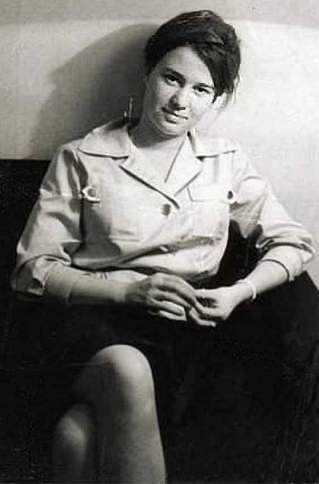★★★
“Death wish, too.”
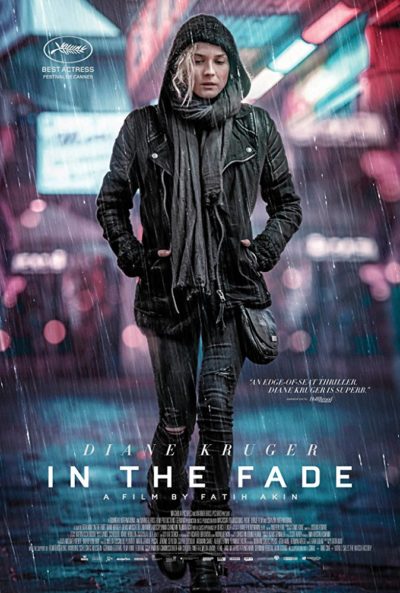 I spent most of the movie going back and forth as to whether or not this qualified for inclusion here. Was its lead, perhaps, just too subdued and reactive to be called an “action heroine”? It wasn’t until after the very final scene that I finally was able to decide it does merit a spot. Though make no mistake, this is a long, slow-burning fuse before it goes off.
I spent most of the movie going back and forth as to whether or not this qualified for inclusion here. Was its lead, perhaps, just too subdued and reactive to be called an “action heroine”? It wasn’t until after the very final scene that I finally was able to decide it does merit a spot. Though make no mistake, this is a long, slow-burning fuse before it goes off.
The life of Katja Şekerci (Kruger) is torn apart when a bomb is left outside her husband’s office, killing both him and their young son. Initially, the cops suspect his past has caught up with him – he did time in prison for dealing hashish. While Katja believes otherwise, matters are not helped by Katja’s relapse into drug-use to deal with the pain. Eventually, she is proven right, and the police arrest a husband and wife pair of neo-Nazis (Hilsdorf and Brandhoff). They are tried, but the law fails to deliver the justice Katja wants, and she is forced to take matters into her own hands, despite the pleas of her lawyer (Moschitto) to trust the system.
As vigilante movies go… this one probably doesn’t. It’s instead divided into three acts: the first covers the explosion and its immediate impact; the second the trial; and the third what ensues thereafter, as Katja tracks down the perpetrators. In a more traditional genre entry, the first two would be disposed of in about 15 minutes, but here, they’re much more the focus. In particular, we see, in almost painful detail, Katja’s progress through the stages of grief – though it’s less a passage through them, and more a downward spiral towards a pitch-black version of acceptance. Indeed, she’s in the middle of a suicide attempt, filmed in disturbingly chill passivity, when she gets news of the terrorists’ arrests.
I have some issues with certain aspects of the plot. For instance, her conviction this was a terrorist attack, while eventually right, seems to come out of thin air. I’m also less than certain it’s quite as easy to make a bomb as is suggested [I’m pretty sure – and certainly hope – that even looking up instructions on Google would quickly get you watched, especially given the circumstances here] However, her single-minded dedication to punish those she holds responsible, regardless of the personal cost, is striking, and there’s no arguments about the strength of Kruger’s portrayal either, which is excellent. You truly feel her grief, and this makes everything she does subsequently, a natural product of it.
Confucius supposedly said, “Before you embark on a journey of revenge, dig two graves.” This is a feature adaptation of that concept, with Katja more or less fatally wounded – at least, inside – along with her husband and child. This is not an uplifting film by any means. Indeed, it manages to become more depressing the longer it goes on, and considering the real starting point is a six-year-old being literally blown into pieces, that’s quite a feat. Not necessarily a bad thing, of course; although the net result is a film of merit, yet one I’m unlikely to watch again.
Dir: Fatih Akin
Star: Diane Kruger, Denis Moschitto, Hanna Hilsdorf, Ulrich Brandhoff
a.k.a. Aus dem Nichts





 The German-Canadian co-production is split into two feature-length parts – “Dragonfly” and “Energy” – but is absolutely a single entity, so that’s how it’ll be covered here. I was braced for something truly dreadful, after reading some particularly scathing reviews, and seeing no less than
The German-Canadian co-production is split into two feature-length parts – “Dragonfly” and “Energy” – but is absolutely a single entity, so that’s how it’ll be covered here. I was braced for something truly dreadful, after reading some particularly scathing reviews, and seeing no less than 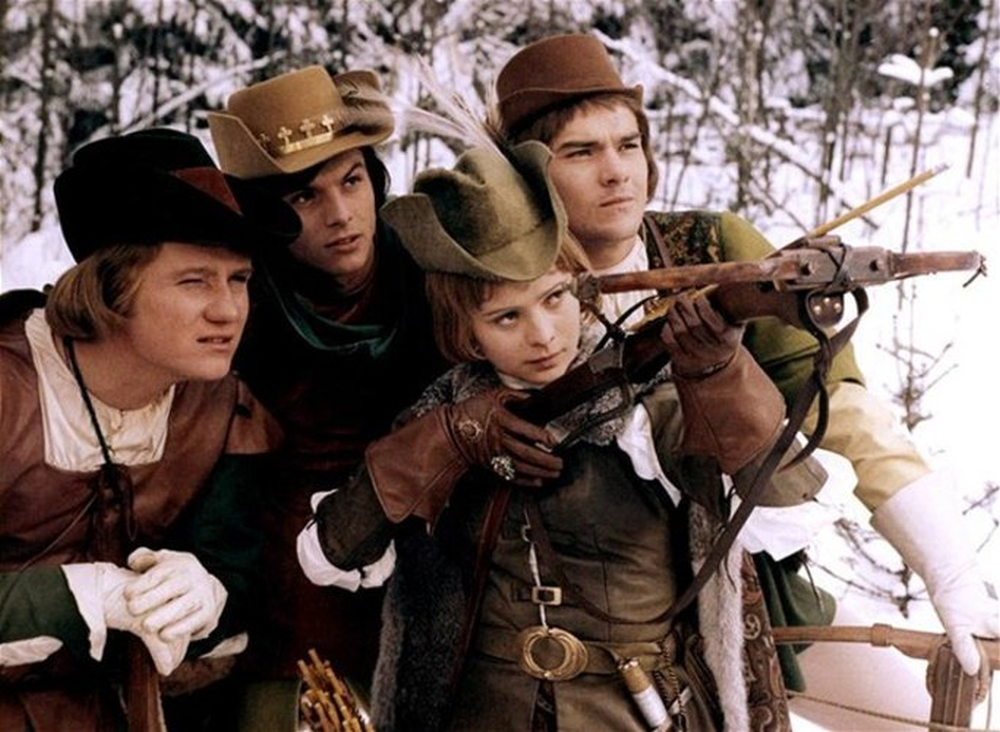
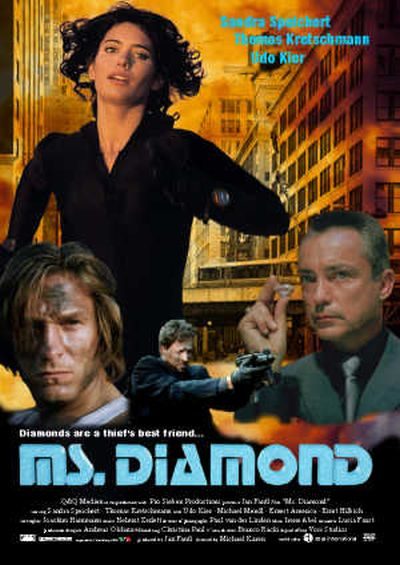 There’s an exhibition showcasing the first diamonds ever mined in Germany, dug up by the company belonging to Buhler (Kier). Keeping thing safe is the responsibility of security expert Tim (Kretschmann), who doesn’t realize that renowned jewel thief Lana (Speichert) has her eyes on the jewels. So they’re both in for a nasty surprise, because after Lana is caught by Tim in the process of stealing them, it turns out the diamonds are completely fake. Buhler gives her an ultimatum: Lana must find the real diamonds, or she’ll be handed over to the police, and to ensure she doesn’t just run off, tasks Tim with keeping an eye on her. It soon becomes clear, though, that there is more to the mystery than there appears initially, and someone is very keen to stop them from getting to the truth.
There’s an exhibition showcasing the first diamonds ever mined in Germany, dug up by the company belonging to Buhler (Kier). Keeping thing safe is the responsibility of security expert Tim (Kretschmann), who doesn’t realize that renowned jewel thief Lana (Speichert) has her eyes on the jewels. So they’re both in for a nasty surprise, because after Lana is caught by Tim in the process of stealing them, it turns out the diamonds are completely fake. Buhler gives her an ultimatum: Lana must find the real diamonds, or she’ll be handed over to the police, and to ensure she doesn’t just run off, tasks Tim with keeping an eye on her. It soon becomes clear, though, that there is more to the mystery than there appears initially, and someone is very keen to stop them from getting to the truth.
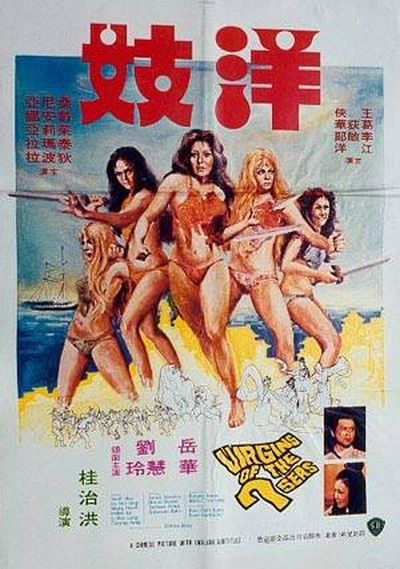
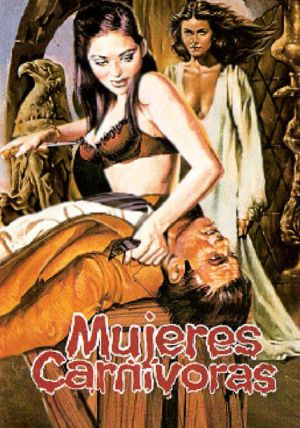 This German 1970’s film is well ahead of its time in some ways, but is postively Neanderthal in others, being basically a scream of fear about women’s liberation. It feels like a far-less subtle version of Neil LaBute’s re-make of The Wicker Man, taking place in a matriarchal town, where women are in charge, with the exception of a couple of incompetent men, to lift heavy things and provide a facade of normality (the police commissioner is an alcoholic, who knows little and cares less about what’s going on). Into this scenario comes Eve (Glas), a stressed-out secretary who has been booked in for a six-week course of treatment at the local spa. It’s not long before she stumbles across the body of a man with a knife embedded in his back, only to discover that no-one believes her, with the clinic’s doctor telling people Eve is suffering from post-tramautic hallicinations. Is that the case, or is there something genuinely unpleasant going on? And what’s this on the dinner menu?
This German 1970’s film is well ahead of its time in some ways, but is postively Neanderthal in others, being basically a scream of fear about women’s liberation. It feels like a far-less subtle version of Neil LaBute’s re-make of The Wicker Man, taking place in a matriarchal town, where women are in charge, with the exception of a couple of incompetent men, to lift heavy things and provide a facade of normality (the police commissioner is an alcoholic, who knows little and cares less about what’s going on). Into this scenario comes Eve (Glas), a stressed-out secretary who has been booked in for a six-week course of treatment at the local spa. It’s not long before she stumbles across the body of a man with a knife embedded in his back, only to discover that no-one believes her, with the clinic’s doctor telling people Eve is suffering from post-tramautic hallicinations. Is that the case, or is there something genuinely unpleasant going on? And what’s this on the dinner menu? After the abomination that was Part 2, I’d filed the third entry under ‘watch whenever I have time’, until a spirited debate on its merits (or otherwise) broke out on over oun our
After the abomination that was Part 2, I’d filed the third entry under ‘watch whenever I have time’, until a spirited debate on its merits (or otherwise) broke out on over oun our 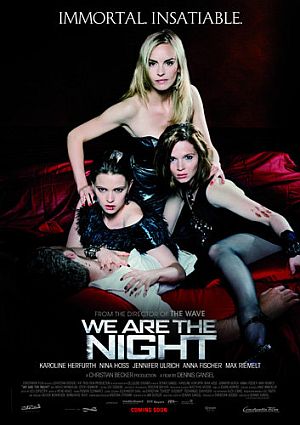
 Lena (Herfurth) lives on the edge of society: stealing from other criminals, and running from the cops. But her life changes forever, when she comes to the attentions of Louise (Hoss), a rich socialite, who runs with her pack of friends. Louise is actually a centuries-old vampire, who sees something in Lena’s eyes, something for which Louise has been searching for many decades. She bites Lena, and her transformation into a creature of the night begins. It’s not without its issues: to force Lena to come to terms with her new-found strength and speed, she is handed over to a pimp, a scenario which turns into a blood-bath. While Lena does adapt, the police investigate the killings and Tom (Riemelt), who knew Lena from her street days, realizes there’s a connection between her and what happened.
Lena (Herfurth) lives on the edge of society: stealing from other criminals, and running from the cops. But her life changes forever, when she comes to the attentions of Louise (Hoss), a rich socialite, who runs with her pack of friends. Louise is actually a centuries-old vampire, who sees something in Lena’s eyes, something for which Louise has been searching for many decades. She bites Lena, and her transformation into a creature of the night begins. It’s not without its issues: to force Lena to come to terms with her new-found strength and speed, she is handed over to a pimp, a scenario which turns into a blood-bath. While Lena does adapt, the police investigate the killings and Tom (Riemelt), who knew Lena from her street days, realizes there’s a connection between her and what happened.